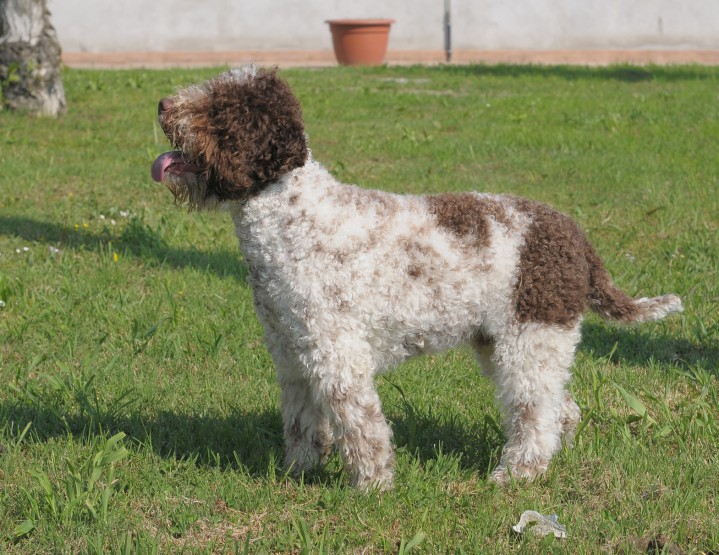
Knowing what to feed your dog is one of the most important decisions you can make affecting your dog's health. In this article I want to give you some of my secrets to feeding your dog a healthy food. What to look for, what not to feed, what to add to your dog's diet, and ultimately how you can decide this for yourself.
There are many reasons for the increasingly common serious dog and diseases, but the biggest single factor is food. Nutrition is key to the health of our dogs. If you eat healthier, you are healthy; the same holds true for our pets.
It's important to know the specific ingredients that should be in healthy dog foods. Pet food does not have to be as complicated as most food companies (and many veterinarians) would have you believe. Healthy pet food is comprised of very simple, basic ingredients.
Good pet food will contain the following: Real meat, such as chicken, lamb, beef, bison, deer, or fish, as the primary ingredient. These are a sources of high-quality, highly digestible protein. Proteins are essential for growth, maintenance, reproduction, repair and energy. Vegetables and fruit provide essential phytonutrients, antioxidants and enzymes, plus natural vitamins, minerals and fibers. As with us, vegetables and fruit have been shown to promote health and wellness. If there is a carbohydrate, it should be whole grains such as brown rice, barley and oats, sweet potato - these are complex carbohydrates. These are helpful in maintaining your dog or cat's energy level, but carbohydrates are not necessarily required for dogs.
In the world of dog food, the rule of 'you get what you pay for' is somewhat valid. No question, the inexpensive cheap food is made with poor quality ingredients. To be able to sell a 40lb bag of dog food for $15, means it must include some pretty cheap ingredients; think about the protein source, derived from slaughtered animals: lungs, spleen, kidneys, brain, and more. The dog foods with better quality ingredients generally cost more as the ingredients are more expensive. In some cases though the higher prices are also there to supplement the company's marketing fees; the higher prices are not always an indication of quality.
The top 10 ingredients usually comprise 80% or more of a dry pet food's entire formula - by focusing on these ingredients, you can determine if a food is of good quality. An animal based protein should be first- not a carbohydrate, such as corn. I advise feeding the 'healthier' carbohydrates, such as sweet potato, potato, and brown rice.
Corn, wheat and soy have been linked to allergic reactions in some dogs, and are not as easy to digest. I am of the opinion that these can still be included in your dog's food, but they should be there to complement the food, not be the primary ingredients.
Are local ingredients better?- Yes, but in most cases this is not feasible as local source dog food could cost upwards of $200/ bag. There are some good quality dog foods with ingredients sourced from China, but these companies have some stringent quality controls. My suggestion is to support companies with good track records of producing healthy food, companies which have strict quality control, and those who have shown that their food is nutritionally sound producing healthier dogs.
There are a few specific ingredients which never need to be in your dog's food; and there are many reasonable priced foods without these ingredients. Avoid the chemical preservatives such as ethoxyquin, BHA, BHT and propylene glycol. Instead, look for natural preservatives such as Tocopherols (vitamin E) and ascorbic acid (vitamin C). Avoid foods with artificial flavor enhancers, such as phosphoric acid. There is no need for artificial flavor in feeding your dogs. The last big chemical additive which we should all be avoiding, (especially our dogs) is the artificial colors. These include azo, azo dyes, and sodium nitrite.
Lastly, there are quick, inexpensive and easy things that you can do to dramatically improve the quality of your dog's food. I am regularly adding some of these ingredients to my own dog's food; I encourage you to try some of these with your own dog. My top 5 include: table scraps, vegetables and fruit, the healthy omega 3 fat, natural probiotics found in yoghurt, and eggs.
You should now have a better understanding of the importance of dog food and your pet's health, and be able to use the criteria I have outlined in the article to evaluate your dog's food. Be aware of the specific ingredients to avoid in your dog's food, and lastly you should now be able to add some of the pretty common ingredients found in your kitchen to supplement your dog's diet, giving them a great, inexpensive nutritional boost.
Dr Andrew Jones is the author of a NEW Free Ebook, Dog Health Secrets, which gives you over 100 safe, natural and effective at home remedies to solve your dog's health problems quickly and easily at home. He reveals what Vaccines to AVOID and what to give, The BEST food to feed, plus HOW to save money on veterinary fees. Your FREE Dog Health Secrets Book is here
 Canine Chiropody - Paw, Pad And Claw Injuries And How To Prevent Them
Canine Chiropody
Canine Chiropody - Paw, Pad And Claw Injuries And How To Prevent Them
Canine Chiropody
 More Information On The Lagotto Romagnolo Dog Breed
More Information
More Information On The Lagotto Romagnolo Dog Breed
More Information
 Why Some Dogs Hate Going For A Walk In The Dark
Why Some Dogs Hat
Why Some Dogs Hate Going For A Walk In The Dark
Why Some Dogs Hat
 Dog umbrellas and other necessary pet accessories for the summer
Dog umbrellas and other necessary pet accessories for the
Dog umbrellas and other necessary pet accessories for the summer
Dog umbrellas and other necessary pet accessories for the
 Eight Communicable Dog Diseases To Be On The Lookout For
Eight Communicabl
Eight Communicable Dog Diseases To Be On The Lookout For
Eight Communicabl
Copyright © 2005-2016 Pet Information All Rights Reserved
Contact us: www162date@outlook.com